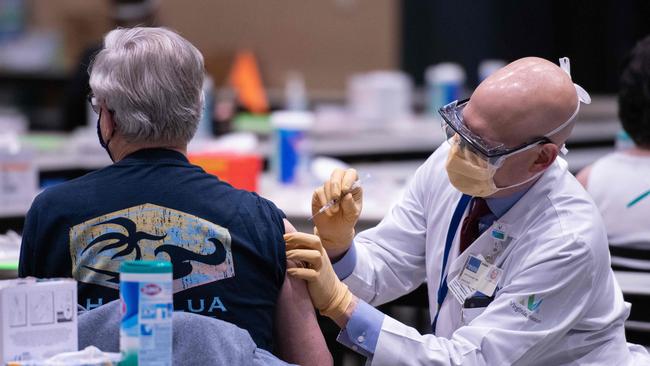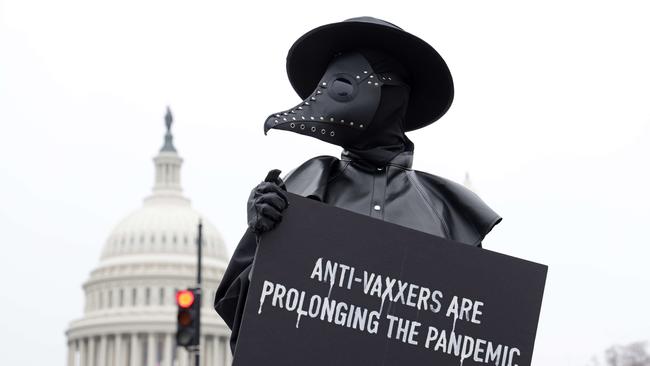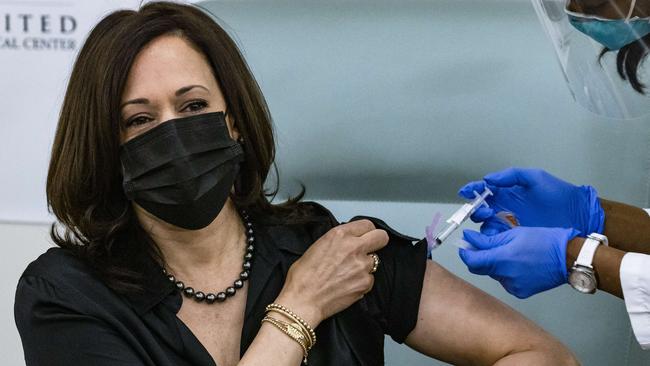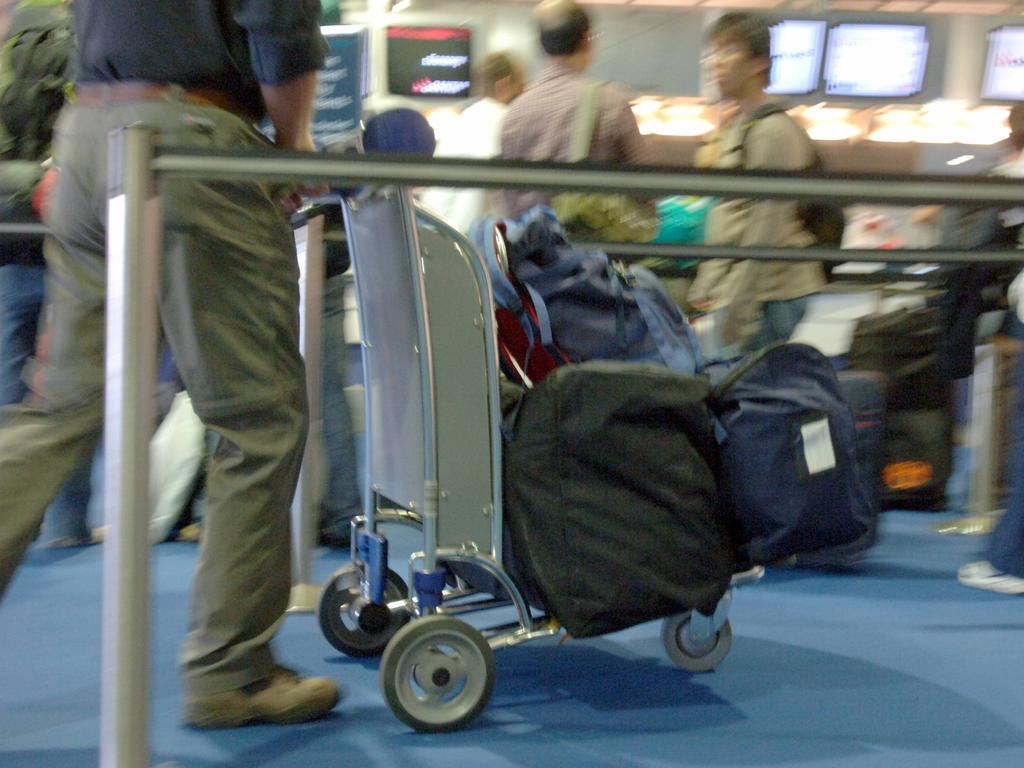Getting back to our BC (before Covid) world
Think of a vaccine passport not as an impost but as a ticket out of the asylum.

In Britain, COVID cases have plunged but the country will remain in various stages of its third lockdown until June 21, the government insists, 15 months after it all began.
Vaccine passports are the least-cost way to put COVID restrictions behind us. Far from banning them, governments should help set up a way for the vaccinated to prove their status so they can get on with their lives exempt from lockdowns and mask mandates. Vaccine passports would allow scared or vulnerable people to interact confidently with vaccinated people.
The “first best” world of 2019, or 1BC (before COVID), isn’t available, only bad and less bad options. “Excuse me, sir, please put your mask on before I approach your table,” said a young waitress while I was dining alfresco the other night. Think of a vaccine passport not as an impost but as a ticket out of the asylum.
Ideally, we wouldn’t want or need vaccine passports. Those who were vulnerable to COVID-19 would seek vaccination and those who weren’t would not. Individuals would make their own assessments privately with their doctors. But we are far from an ideal world. As ongoing restrictions demonstrate, coercion is popular and many are stubbornly terrified of COVID-19, and fearful they might catch it from perfectly healthy people.
Without vaccine passports it becomes harder to coax a large chunk of the population back to normality. That’s why I took the vaccine. I don’t see COVID as much of a threat to me personally. But if it puts others at ease, helping in a small way to bring an end to this awful chapter, it’s worth it.

The chance of serious side effects is vanishingly small, even for the AstraZeneca vaccine, which hasn’t been approved in the US yet. I braced for a rugged few days after my shot but I didn’t feel even the slightest side effect. In fact, in clinical trials only one in 10 people reported any side effects at all
In the US more than 119 million people, including 78 per cent of those aged over 65, have received at least one shot of one of the three available vaccines as of last week. No one has yet died as a result, according to the Centres for Disease Control, while between two and five per million have experienced anaphylaxis, a severe allergic reaction. The chance of dying under general anaesthetic is thought to be about one in 100,000.
We can’t extract the full economic and social potential of COVID vaccines without providing a way for the vaccinated to identify themselves. Florida and Texas, which have admirably lifted almost all their COVID-19 restrictions, have banned any type of vaccine passport. President Joe Biden has ruled out a federal vaccine passport. Banning passports is almost as illiberal as making vaccination compulsory. No one should be forced to vaccinate against COVID but neither should others be required to mix with those who aren’t vaccinated if they don’t want to.
The good news is the free market can cater to everyone. Some businesses will require customers or workers to have vaccine passports, others won’t. Restaurants, planes and trains might offer COVID-safe areas for use of those with vaccine passports.
Israel is rolling out a “green pass” vaccine passport and will lift the requirement to wear masks outside next week.

Australia, where fewer than 3 per cent of the population is vaccinated, desperately needs a way to induce more people to get vaccinated, especially after the publicity disaster that has befallen the AstraZeneca vaccine being manufactured in Melbourne. At this sluggish rate, the international border will stay closed and sporadic lockdowns will wreak havoc indefinitely. Perhaps the end of restrictions could be linked to vaccination progress? Desperate times require desperate measures.
The US vaccination rollout, extraordinarily rapid and efficient, should have been a model for Australia. Former president Donald Trump was mocked last year for predicting the relatively quick arrival of vaccines, but under his Operation Warp Speed the US government ordered about 300 million doses of different vaccines from different manufacturers before they were developed or approved for use. Biden will enjoy the dividends.
Last week I registered online and was offered a range of locations based on which vaccine I preferred (Pfizer, Moderna or Johnson & Johnson). Once my name was marked off, I sat on one of hundreds of chairs that filled a school gymnasium. Nurses were moving up and down the rows, spending no more than two minutes with each person — a vaccination production line.
I picked the Johnson & Johnson vaccine, mainly to save time — it’s one shot rather than two — and because I preferred a more traditional vaccine technology.
Some fear vaccine passports are a slippery slope. But governments already store plenty of data about our health history. And there’s no reason vaccine passports can’t be provided privately.
In any event, eventually fear of COVID-19 will subside. Fewer people will bother obtaining booster shots (it’s thought the vaccines confer immunity for about six months), meaning their passports will lapse. In turn, businesses will need to ratchet down their rules to keep customers.
The biggest risk is the vaccines don’t work well enough. British Prime Minister Boris Johnson recently said people shouldn’t be interacting with other households, even if they had been vaccinated. “The vaccines are not giving 100 per cent protection, that’s why we need to be cautious,” he said.
However, they do give 100 per cent protection against hospitalisation and death, according to the US Food and Drug Administration, which should be enough for us all to move on.







Six days after receiving a COVID-19 vaccine in Washington, DC, I’m still having to walk to the shops with a mask. In Israel, where more than 80 per cent of the population over 60 was fully vaccinated a month ago, masks are still compulsory, even outside.